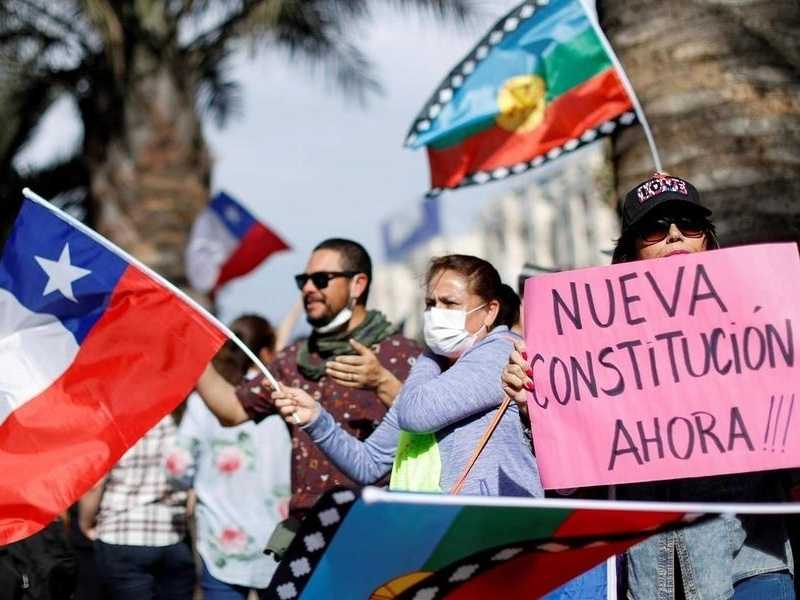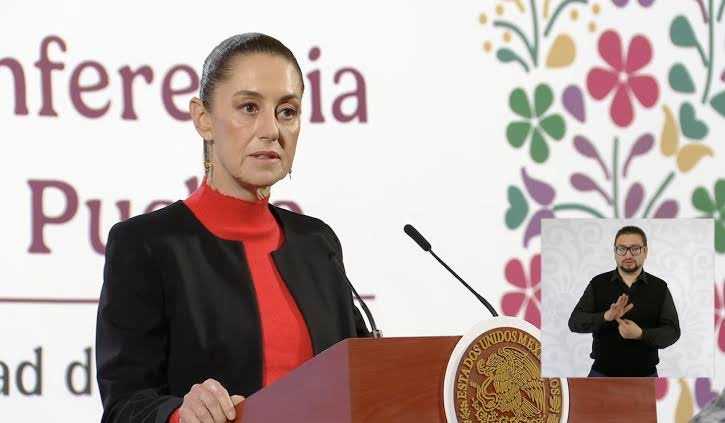
Now, it is set to make history again, as the Chilean people prepare to vote on a new document with the most far-reaching implications for gender and women’s rights of any constitution in the world.
We, feminists from around the world, celebrate this exemplary process and stand in support of Chile as it prepares to open a new chapter in its history.
In Chile’s new constitution, we are protagonists. It guarantees equal gender representation and decision-making at the national, regional and communal levels, with gender parity required in all institutions, elected and appointed — “Its democracy is inclusive and egalitarian.”
In Chile’s new constitution, we are free. With progressive laws for safe and legal abortion, rights for trans and non-binary people, and the right to a life free of violence, it protects the right of every person to live a life of dignity and joy. Every person is guaranteed the right to identity in all its dimensions and manifestations, including sexual characteristics, gender expressions, name and sex-affective orientations.
In Chile’s new constitution, we are valued. It sees the world as feminists do — recognizing the myriad ways in which women hold up our economies and our worlds. It prioritizes economic dignity and independence for women, recognizing care work and its contribution to the economy, along with acknowledging the discrimination in the sphere of work.
In Chile’s new constitution, we are seen. The Constitution not only defends personal and political rights but guarantees substantive, rather than formal gender equality by tasking the State to promote a society in which “women, men, sexual and gender diversities and dissidences, participate in conditions of substantive equality, recognizing that their effective representation in the democratic process as a whole is a principle and a minimum condition for the full and substantive exercise of democracy and citizenship.”
Elisa Loncon said, “From this moment, we found a new Chile: plural, multilingual, with women, with territories. This is the dream of our ancestors come true.”
We share this dream with our friends in Chile, we share this dream with the world.
Angela Davis, Professor, USA.
Irene Montero, Minister of Equality; Member of the Congress of Deputies, Spain.
Silvia Federici, Co-founder of the International Feminist Collective; Professor, Italy.
Judith Butler, Professor, USA.
Elizabeth Gómez Alcorta, Minister of Women, Genders and Diversity, Argentina.
Clara López Obregón, Senator; former Minister of Labor and Mayor of Bogotá, Colombia.
Nancy Fraser, Professor, USA.
Chantal Mouffe, Professor, Belgium.
Niki Ashton, Member of Parliament, Canada.
Zarah Sultana, Member of Parliament, United Kingdom.
Aruna Roy, Founder-member of Mazdoor Kisan Shakti Sanghathan (MKSS); President of the National Federation of Indian Women (NFIW); India.
Paola Pabón, Prefect of Pichincha, Ecuador.
Lidy Nacpil, Coordinator of the Asian Peoples’ Movement on Debt and Development (APMDD); Co-coordinator of the Global Campaign to Demand Climate Justice, Philippines.
Julia Argentina Perié, Co-president of the Euro-Latin American (EuroLat) Women’s Forum, Argentina.
Veronika Mendoza, Former presidential candidate; former Member of Congress, Peru.
Manuela D'Ávila, Fmr vice-presidential candidate; Fmr Member of the Chamber of Deputies, Brazil.
Anahí Durand, Professor; Fmr Minister of Women and Vulnerable Populations, Peru.
Betiana Díaz, Member of the Chamber of Representatives; Member of the Mercosur Parliament, Uruguay.
Mônica Valente, Executive Secretary, São Paulo Forum, Brazil.
Idoia Villanueva, Member of the European Parliament; Secretary of International Relations, Podemos, Spain.
Lucía Muñoz Dalda, Member of the Congress of Deputies, Spain.
Verónica Gago, Professor, Argentina.
Jahiren Noriega Donoso, Member of the National Assembly(alternate), Ecuador.
Maite Mola, First Vice-president of the Party of the European Left, Spain.
Cinzia Arruzza, Professor, Italy.
Lucía Cavallero, Professor; Member of the Ni Una Menos Collective; Argentina.
Dolores Gandulfo, Director of the Electoral Observatory, Permanent Conference of Political Parties of Latin America and the Caribbean (COPPPAL), Argentina.
Esther Miranda, Analyst; Member of the International Secretariat, Podemos, Spain.




